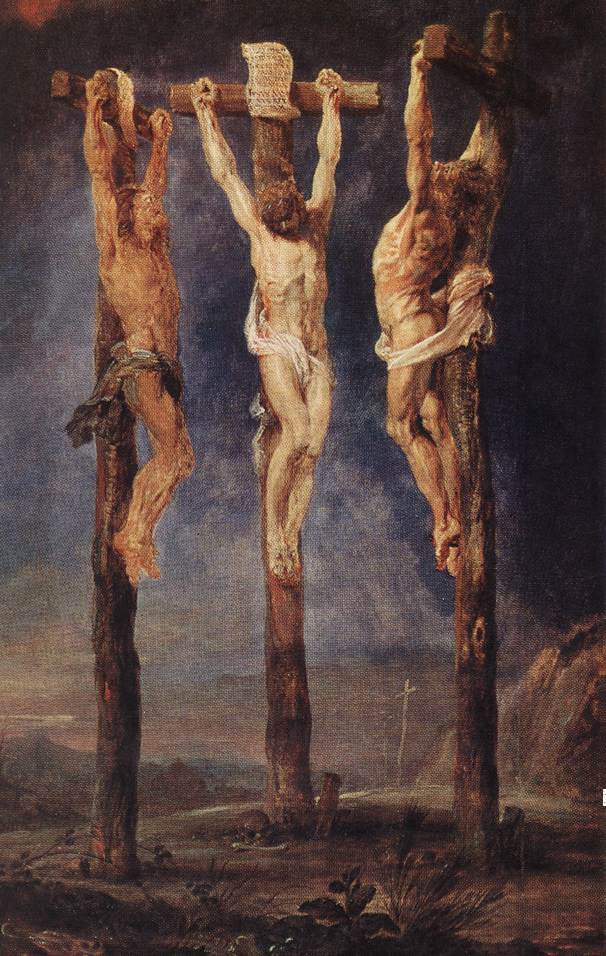 |
| The Three Crosses by Pieter Pauwel Rubens (1620) |
Sermon Texts: Jeremiah 23:1-6; Colossians 1:11-20; Luke 23:33-43
Let us pray. May the words of my mouth and the meditations of all our hearts be acceptable in your sight, O Lord, our strength and our redeemer. Amen.
[Introduction] Today we celebrate the final Sunday of the liturgical year: Christ the King Sunday. Next Sunday is the first Sunday of Advent. A week from today, Christians will be able to say to one another, “Happy New Year!” and mean it. We Christians have our own calendar and celebrate our own feasts as a way of expressing the world’s deepest truth: Christ really is the King. He is king not only of our lives but of the whole world.
[Page 1] Turning to our readings today, we can see that this idea that Jesus is king is not what the world thought. Our passage from Luke’s Gospel begins with the clang, clang, clang of stakes being driven into wooden beams. The text says, “When they came to the place that is called The Skull, they crucified Jesus there with the criminals, one on his right and one on his left” (Lk 23:33). As Jesus hangs naked on the cross with a crown of thorns on his head, those who crucified him stand around. They are the leaders of Jesus’ world. On the one side, there are the religious leaders of his nation. They, the shepherds of God’s people, scoff at Jesus: “He saved others; let him save himself if he is the Messiah of God, his chosen one!” On the other side, there are the Roman soldiers. They, too, mock the bleeding Jesus: “If you are the King of the Jews, save yourself!” Even one of the criminals hanging beside Jesus derides the broken man: “Are you not the Messiah? Save yourself and us!” And, even though the sign above Jesus’ head reads “This is the King of the Jews,” there is no doubt in the gathered crowds’ minds that he is no such thing. The whole world is gathered around Jesus on the cross. From the lowest criminal to the highest religious and political authorities in Jesus’ world, the whole world rejects Jesus as king.



